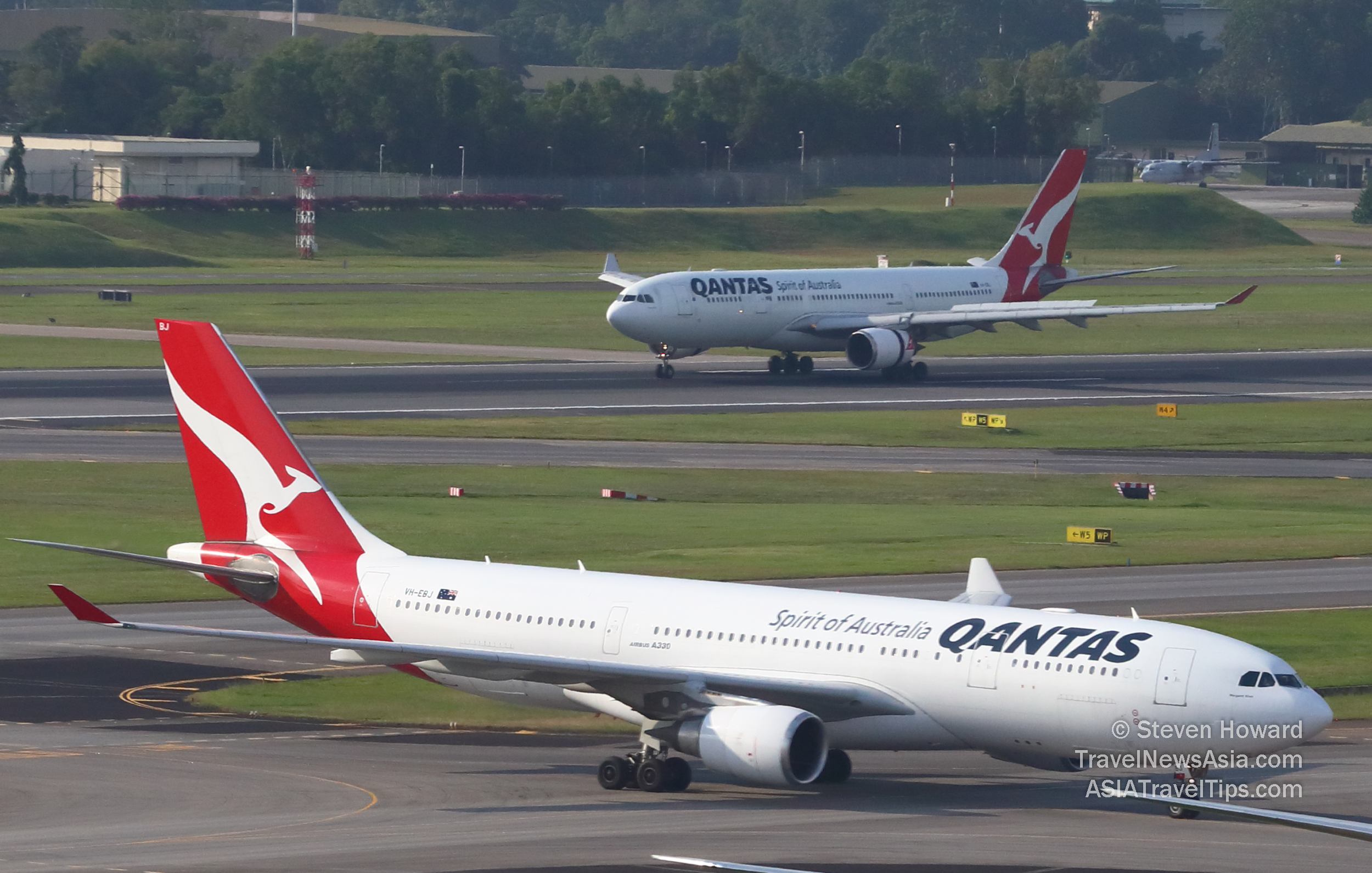|
Qantas has chosen the
Airbus A350-1000 as its preferred aircraft for Project Sunrise -
ultra long-haul flights of up to 21 hours.
The airline has not yet placed an order for the
aircraft and is expected to make a final go/no go decision on
Project Sunrise in March 2020.
Qantas is now negotiating with Airbus for up to
12 aircraft ahead of a final decision by the Qantas Board. Airbus
has however already agreed to extend the deadline to confirm
delivery slots from February 2020 to March 2020. This provides
Qantas with additional time to negotiate an industrial agreement
without impacting the planned start date of Project Sunrise
flights in the first half of calendar 2023.

The Airbus A350-1000, powered by
Rolls-Royce Trent XWB engines, has been chosen over the Boeing
777X. Unlike the Boeing, the Airbus has been in service with
airlines for more than two years and Airbus will add an additional
fuel tank that will slightly increase the maximum takeoff weight
to deliver the performance required for Sunrise routes.
The last of three Project Sunrise research
flights (New York to Sydney) will be conducted on 17 December.
Design of the customer experience for flights up
to 21 hours continues, including new cabins across First Class,
Business, Premium Economy and Economy.
Research flights have
underscored the importance of dedicated space for stretching and
movement for Economy passengers in particular, as well as the
potential benefits from re-designing the service on board to
actively shift people to their destination timezone.
Qantas Group CEO, Alan Joyce, said, �Between the
research flights and what we�ve learned from two years of flying
Perth to London, we have a lot of confidence in the market for
direct services like New York and London to the east coast of
Australia. The A350 is a fantastic aircraft and the deal on the
table with Airbus gives us the best possible combination of
commercial terms, fuel efficiency, operating cost and customer
experience. The aircraft and engine combination is next generation
technology but it�s thoroughly proven after more than two years in
service. This is the right choice for the Sunrise missions and it
also has the right economics to do other long haul routes if we
want it to. From the outset, we�ve been clear that Project Sunrise
depends on a business case that works. We�ll only commit to this
investment if we know it will generate the right return for our
shareholders given the inherent commercial risks.�
Industrial negotiations with representatives for
Qantas pilots, AIPA, are continuing. The discussions are aimed at
closing the last remaining gap in the Project Sunrise business
case. Qantas has put forward a number of suggestions to AIPA on
how the gap might be closed while still offering three per cent
annual pay increases and promotional opportunities to its long
haul pilots. Discussions centre on productivity and efficiency
gains, including the ability to use the same pilots across its
A350 Sunrise aircraft and the airline�s existing fleet of Airbus
A330s.
�We�ve done a lot
of work on the economics and we know the last gap we have to close
is some efficiency gains associated with our pilots. We�re
offering promotions and an increase in pay but we�re asking for
some flexibility in return, which will help lower our operating
costs. Airbus has given us an extra month to lock in an aircraft
order without impacting our planned start date, which means we can
spend more time on hopefully reaching a deal with our pilots. Can
I thank both Airbus and Boeing for the tremendous effort they have
put into Project Sunrise. It was a tough choice between two very
capable aircraft, made even harder by innovation from both
manufacturers to improve on what they had already spent years
designing,� Joyce added.
See latest
Travel News,
Interviews,
Podcasts
and other
news regarding:
Qantas,
Airbus.
|
Headlines: |
|
|
